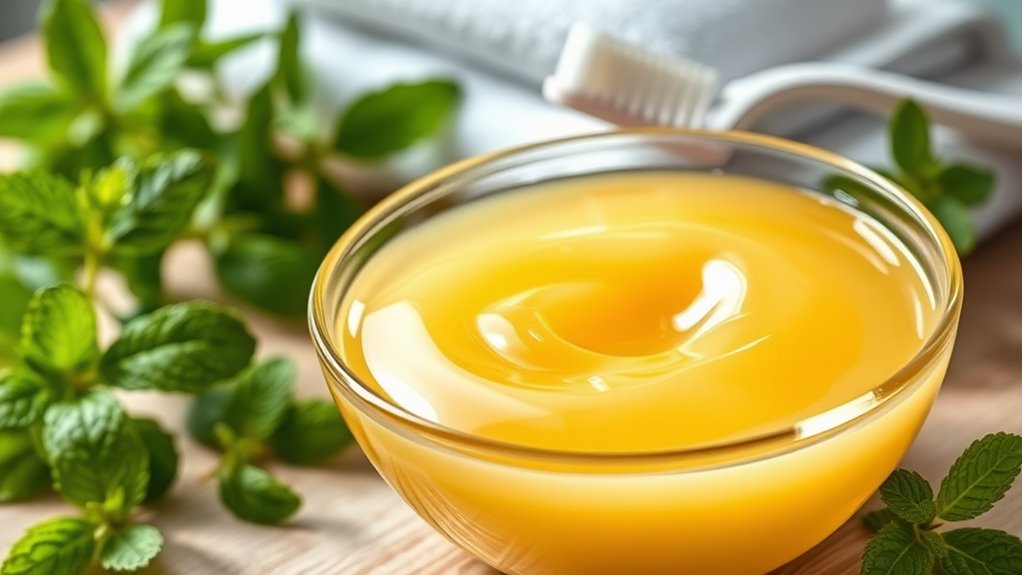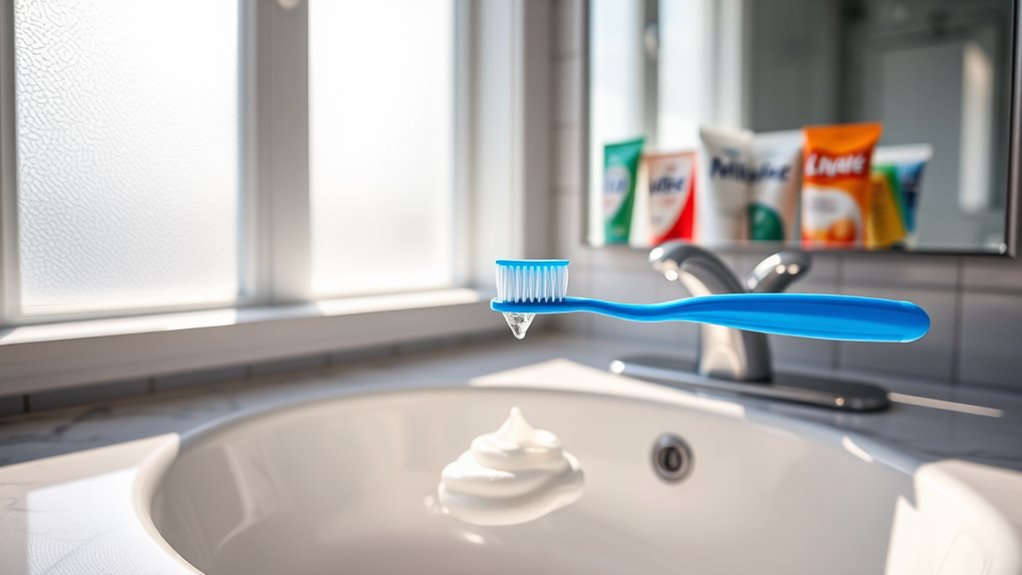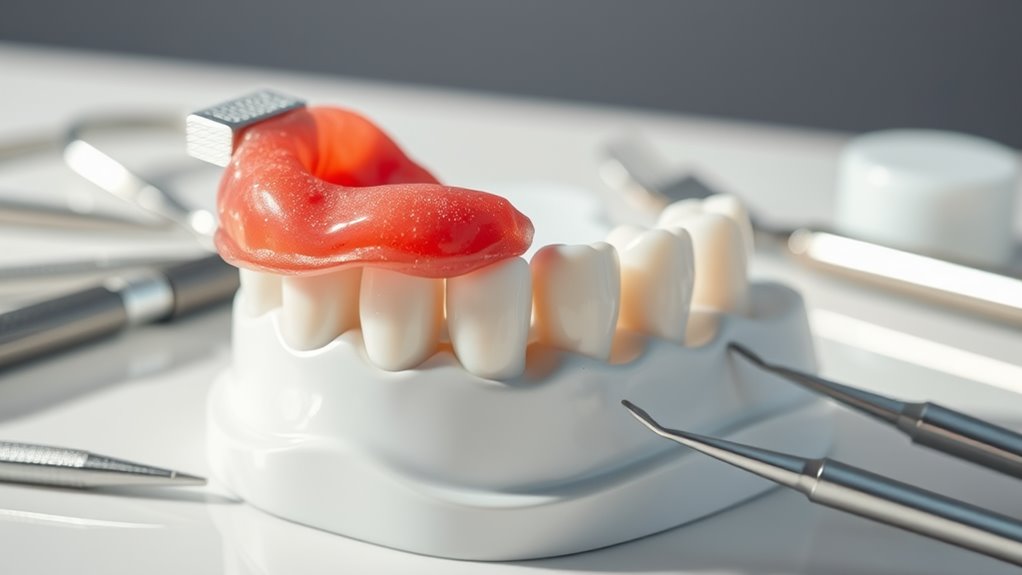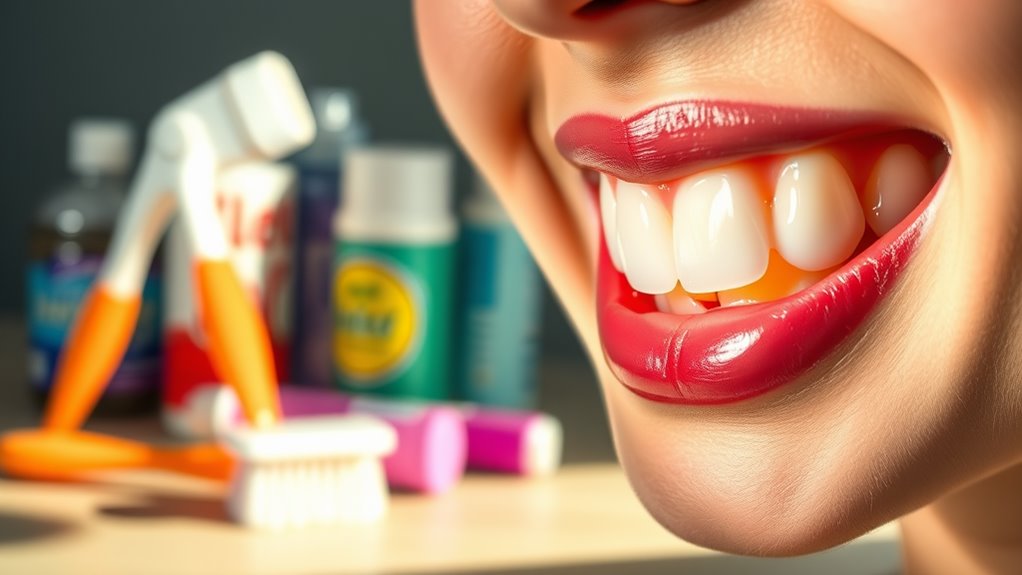The Truth About Oil Pulling-Helpful or Hype.
Key Takeaways
- Oil pulling is an ancient Ayurvedic practice promising enhanced oral hygiene through swishing oils like coconut or sesame in the mouth.
- Claimed benefits include plaque reduction, teeth whitening, and improved gum health, although scientific evidence is limited and ongoing.
- While generally safe, potential risks include jaw pain and gastrointestinal issues if swallowed, and allergic reactions to low-quality oils.
- It is an affordable method for oral care, but not a substitute for regular brushing and dental visits.
- Further research is needed to fully understand its efficacy and validate the many claims surrounding oil pulling.
What Is Oil Pulling?
Oil pulling is an ancient oral health practice that involves swishing a tablespoon of edible oil—typically coconut, sesame, or sunflower—around your mouth for about 15 to 20 minutes. Research indicates that oil pulling may reduce harmful bacteria, plaque, and gingivitis while promoting fresher breath. Other oil pulling facts highlight its affordability and ease, making it an accessible option for many seeking improved oral hygiene. Additionally, regular oil pulling can combat inflammation and help promote healthier gums.
Historical Background of Oil Pulling
The practice of oil pulling dates back thousands of years, originating in ancient Ayurvedic texts from India. Traditionally, practitioners swished oil in their mouths to enhance oral hygiene.
| Year | Origin | Key Texts |
|---|---|---|
| 500 BC | Ancient India | Charaka Samhita |
| 2000 BC | Early Ayurvedic practices | Sushruta Samhita |
| 1200 AD | Increased popularity in India | Unani medicine texts |
| 20th CE | Western awareness begins | Modern health seminars |
| Present | Global interest and research | Health blogs |
Claimed Benefits of Oil Pulling
Oil pulling is often praised for its potential benefits, particularly in improving oral health. Many proponents claim it can aid in detoxifying the mouth and provide revitalizing effects. Understanding these claimed benefits can help you weigh the practice’s value against established oral hygiene methods. Additionally, oil pulling’s historical background showcases its roots in Ayurvedic medicine, emphasizing its long-standing tradition in promoting oral well-being.
Oral Health Improvement
If you’re exploring natural remedies for improving oral health, oil pulling might catch your attention. Advocates claim it can reduce plaque, whiten teeth, and prevent gum disease. Here’s a quick overview of the reported benefits:
| Benefit | Description | Research Status |
|---|---|---|
| Plaque Reduction | Helps minimize oral bacteria | Limited evidence |
| Teeth Whitening | May enhance tooth appearance | Mixed findings |
| Gum Health | Potential decrease in inflammation | Emerging studies |
Detoxification and Refreshing Effects
Could oil pulling truly be a means of detoxifying the body and revitalizing your oral environment? While some proponents claim benefits, research remains inconclusive.
Potential effects include:
- Reduction of harmful bacteria in the mouth
- A revitalizing feeling after use
- The possibility of alleviating bad breath
It’s essential to approach these claims critically and consider additional evidence supporting or refuting them.
Scientific Evidence: What Studies Say
Scientific research has examined the effects of oil pulling on oral health, offering varied results.
Some studies suggest it may reduce plaque formation and improve gum health, while others show minimal or no significant benefits compared to standard oral hygiene practices.
Potential Risks and Drawbacks
While oil pulling may seem beneficial, it comes with potential risks and drawbacks worth considering. You might experience issues such as oral health concerns, allergic reactions, or gastrointestinal discomfort. Understanding these risks is essential before incorporating oil pulling into your routine. Additionally, it may disrupt the oral microbiome balance, leading to potential oral health complications.
Oral Health Concerns
How can something as simple as oil pulling pose risks to your oral health? While it may seem harmless, there are concerns you should consider:
-
Excessive use might lead to jaw pain or muscle soreness.
-
Swallowing oil can introduce harmful bacteria into your digestive system.
-
Using low-quality oils may cause irritation or allergic reactions in sensitive individuals.
Always weigh the benefits against these potential drawbacks.
Allergic Reactions Possible
Oil pulling can offer various benefits, but it’s important to be aware of potential allergic reactions that may arise, particularly when using certain oils.
If you’re allergic to specific oils, like coconut or sesame, you might experience irritation or other allergic symptoms.
Always perform a patch test before starting oil pulling, and consult a healthcare provider if you have concerns about allergies.
Gastrointestinal Discomfort Risks
If you’re considering oil pulling, be aware that it can sometimes lead to gastrointestinal discomfort.
Potential issues may include:
- Nausea or upset stomach
- Diarrhea or loose stools
- Abdominal cramps
These effects vary by individual and can depend on the type of oil used.
It’s important to listen to your body and consult a healthcare professional if you experience persistent discomfort.
How to Practice Oil Pulling Safely
While many people turn to oil pulling for its potential oral health benefits, it’s important to practice it safely to avoid any adverse effects.
Start with one teaspoon of high-quality oil, like coconut or sesame. Swish gently for 10-20 minutes, and don’t swallow the oil.
Rinse your mouth thoroughly afterward to eliminate toxins and brush your teeth to maintain good hygiene.
Final Thoughts on Oil Pulling
Is oil pulling a worthwhile addition to your oral hygiene routine, or just another wellness trend?
While research is limited, you might consider it for:
- Potential reduction of bacteria in the mouth
- Possible improvement in gum health
- A holistic approach to oral care
Additionally, many people find that oil pulling contributes to overall oral health by reducing plaque buildup and inflammation.
Ultimately, it’s essential to continue regular brushing and flossing, consulting your dentist for the best strategy for your dental health.




